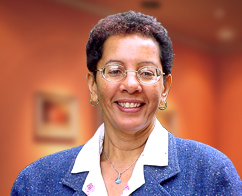
Alexandria Laflair, Staff Writer |
September 19 was the kick-off event for Latinx Heritage Month, titled “The Impact of the War on Drugs on Latinas/Chicanas and their Communities in the U.S. and Latin America.” This event was sponsored by the Africana and Latino Studies department, The Office of Equity and Inclusion, and Dean of Social Science.
Attendants were enticed with free chips and salsa, chicken empanadas, and Lead credit. The evening began with President Lisa Gomez, V.P. Rebecca Sanchez, and Secretary Yasmin Zavala of the Hispanic Organization for Learning Advancement (HOLA) introducing themselves and explaining what being Latina in America means to them.
“I get to share my culture with people who may not know about it, and I can educate them … I do not see latinxs as minorities, because we have the ability and the intelligence to become more educated even though we have to fight for equality and opportunities. We are able to accomplish what we want because we came from people who fought really hard to come to this country and give us the opportunity that our countries unfortunately will not give us,” said Sanchez.
Zavala gave the following input: “Being a Latina in America offered me the opportunity to attend SUNY Oneonta. HOLA inspired me to be a part of the e-board to help connect with other latinxs. I may not have gone through the same challenges they went through, like leaving their country, but as a Mexican-American, I want to show them that they are no different. We are all the same regardless of background.”
Following this insight, Dr. MC Montoya of the Foreign Languages department shared her various wishes for the month on campus, including finding ways to teach white students what exactly “white privilege” is and recognizing that it does exist. Briefly explained, while not all white people have easy lives, the condition of being white entails certain social, political, and economic circumstances that are generally more advantageous than those surrounding nonwhite persons; white people are not facing cyclical socioeconomic poverty as well as societally-ingrained racism, which can manifest in various ways, such as in racial profiling by authoritative figures that may determine one’s job opportunities or a just evaluation in court. Montoya wants to create an open and fair learning atmosphere for all of her students, regardless of their various ethnicities, races, and home environments.
Finally, Dr. Wambai, Professor of Africana and Latino Studies, introduced Keynote Speaker Juanita Diaz-Cotto. A Puerto-Rican academic, human rights activist, Professor of Sociology at Binghamton University, and author of four major novels, Diaz-Cotto came to Oneonta to discuss her opinions. She cited her studies involving the War on Drugs and its effects on Latinxs – particularly women – in Latin America and the U.S.
With great enthusiasm, Diaz-Cotto opened the night by discussing incarceration and how unjust the American prison system has become. Nearly half of the women in jail are there for drug-related crimes, and the disproportionate rates of African-American and Hispanic women in prison are staggering. In favor of legalization and decriminalization of all drugs, she suggested that instead of punishing people for doing things they may be doing out of desperation, fear, poverty, or other reasons out of their control, society should focus on educating people and rehabilitating those who are addicted to drugs.
“Instead, they [the government] push an oppressive war on drugs,” stated Diaz-Cotto.
She also discussed how the War on Drugs was not an “issue” until middle-class white teenagers started using drugs. Now that it has become a full-scale crisis, the wrong people are the ones who are being punished. Diaz-Cotto informed the audience that a Latino man may get caught selling a drug, but make his wife take the blame since he may have already been to jail a few times. Such a man may intimidate a woman to become a “drug mule” without giving any other options to provide for their family. A woman who works as a middle-man in transporting drugs may be thrown into a harsh American prison rather than the big bosses at the source of the crime ring.
Closing the program, Diaz-Cotto encouraged attendants to look at the issue from a bigger perspective.
She left everyone with one thought-provoking comment: When you meet someone, consider “…which of their identities you’ll connect with.” Someone may not seem important to you, and they may not seem to have anything in common with you. They may be a different age, race, nationality, or gender. But any given individual may turn out to come from the same type of city or have the same goals and anxieties about their life.
Diaz-Cotto’s novels, such as “Gender, Ethnicity, and the State,” can be ordered online. Check the posters around campus for more Latinx events throughout the month!
Fun Fact: “Latinx” (pronounced: Latin-X) is a gender neutral term which may refer to a Latino, Latina, or non-binary individual who has cultural ties to Latin America and/or is of Latin American descent.
Leave a Reply